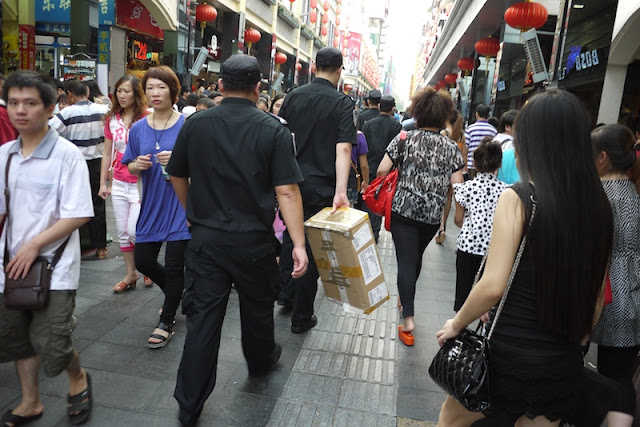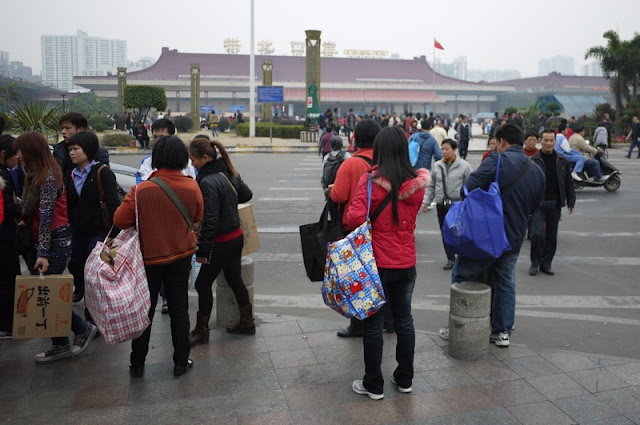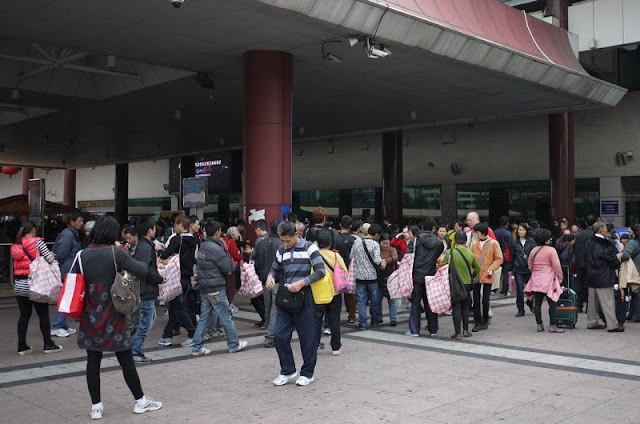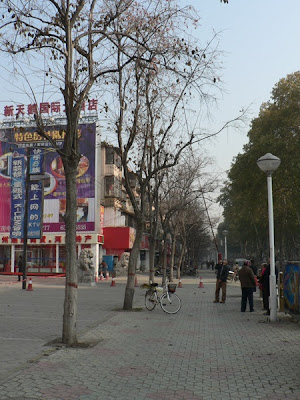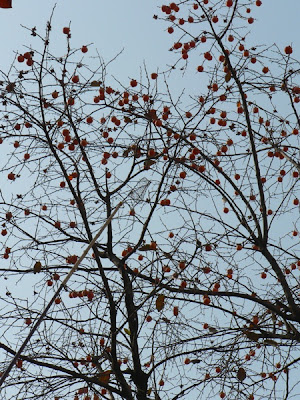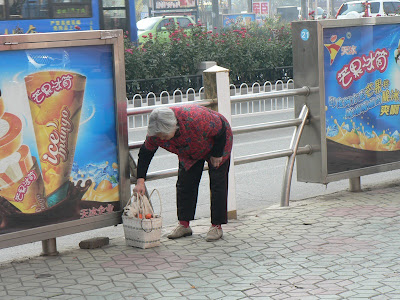There is an ever growing list of pieces that I want to comment on here. So that they all don't get stuck in a bottomless pit due to waiting for time to write the more extensive posts they deserve, I will share a few of them together along with some brief comments.
1. As recent posts here make clear, I have spent the past several weeks in Malaysia. I won't deny that its weather, food, and scenery were a draw. But I was also curious to take a closer look at a key country in a diverse region becoming increasingly relevant for tech companies--somewhat symbolized by an airport in Thailand being the most photographed location on Instagram.
Jon Russell shared his optimism for Southeast Asia in his article "Why Southeast Asia is the world’s most exciting region for startups and tech in 2013" on The Next Web. One of the challenges he mentioned for local startups particularly caught my eye:
2. Michael Dunne, president of Dunne & Company, a Hong Kong-based consultancy specializing in Asian car markets, wrote a post for the China Real Time Report about the growing contribution of cars to China's pollution and the challenges faced in reducing their impact. It raises several key issues, such as why electrical vehicles in China may be best considered as "coal-burning cars". He also addresses why a seemingly simple tactic--reducing pollution by improving the quality of fuel used by vehicles--is not so simple:
3. In FT Magazine Simon Kuper shares and comments on Valerio Vincenzo's photo essays about borders. Much of the article is about the lack of barriers today at the borders between many European countries. Kuper contrasts these open borders with the past and with today's more restrictive borders elsewhere in the world.
As I read Kuper's article and paged through Vincenzo's thought-provoking photos, I considered some borders not mentioned in the article that I have mentioned before: the border between Hong Kong and Shenzhen and the border between Macau and Zhuhai. Both of these borders are remarkable because they restrict the travel of mainland Chinese within their own country. Anyone in Switzerland or Germany can dine at a table straddling the countries' border without needing to show a passport, but mainland Chinese cannot even enter Hong Kong or Macau with only their passport and typically need a special permit (or proof of an onward flight and entry visa to another country). And I can only wish you good luck if you wish to try having a meal which spreads across the border between Hong Kong and Shenzhen.
4. In the category of "Chinese resourcefulness" is a story first reported by Chai Huiqun in China's newspaper Southern Weekly. You can read it in Chinese here. Or you can read Xinhua's English article by Hou Qiang "Homemade dialysis machine sustains uremia sufferer for 13 years":
The story reminds me of research conducted by former colleagues. I'll just say designers of medical technology can learn much from cases such as Hu, both in terms of the challenges some people face in China and how people sometimes overcome those challenges.
And that's all for this edition of assorted links.
1. As recent posts here make clear, I have spent the past several weeks in Malaysia. I won't deny that its weather, food, and scenery were a draw. But I was also curious to take a closer look at a key country in a diverse region becoming increasingly relevant for tech companies--somewhat symbolized by an airport in Thailand being the most photographed location on Instagram.
Jon Russell shared his optimism for Southeast Asia in his article "Why Southeast Asia is the world’s most exciting region for startups and tech in 2013" on The Next Web. One of the challenges he mentioned for local startups particularly caught my eye:
Society in many Southeast Asian countries values working for big companies (‘getting the lanyard’), not to mention that few startups can compete against the salary and compensation packages that multinationals and other large businesses can offer.This reminded me of some of the advantages multinational tech companies with foreign headquarters once enjoyed over local companies in China. It is remarkable how much the landscape has changed in recent years. To keep things brief, for now I will just say that what companies offer and what people seek will continue to evolve. In both respects, a growing variety can be found in China.
2. Michael Dunne, president of Dunne & Company, a Hong Kong-based consultancy specializing in Asian car markets, wrote a post for the China Real Time Report about the growing contribution of cars to China's pollution and the challenges faced in reducing their impact. It raises several key issues, such as why electrical vehicles in China may be best considered as "coal-burning cars". He also addresses why a seemingly simple tactic--reducing pollution by improving the quality of fuel used by vehicles--is not so simple:
Fuel prices are set by the state ostensibly to protect the economy – and especially the rural areas – from affordability shocks.As I've written before, although the pollution related to China's rapid growth is shared by many, the growth of wealth it represents has not been as equally distributed. "The wealthy" subsidizing (in one way or another) the costs of producing high quality fuel could be one way to acknowledge and partially address this problem. Not only would it help people who truly could not afford an increase in fuel prices, but it would help everyone breathe a little bit better. But like other potential solutions, despite some outside impressions of how China operates it is not a change that could be made with the flip of a switch.
State-owned oil companies China National Petroleum Corp and Sinopec have been reluctant to invest in world-class refineries that produce high quality fuel because doing so would increase costs that they cannot pass on to the consumer
3. In FT Magazine Simon Kuper shares and comments on Valerio Vincenzo's photo essays about borders. Much of the article is about the lack of barriers today at the borders between many European countries. Kuper contrasts these open borders with the past and with today's more restrictive borders elsewhere in the world.
As I read Kuper's article and paged through Vincenzo's thought-provoking photos, I considered some borders not mentioned in the article that I have mentioned before: the border between Hong Kong and Shenzhen and the border between Macau and Zhuhai. Both of these borders are remarkable because they restrict the travel of mainland Chinese within their own country. Anyone in Switzerland or Germany can dine at a table straddling the countries' border without needing to show a passport, but mainland Chinese cannot even enter Hong Kong or Macau with only their passport and typically need a special permit (or proof of an onward flight and entry visa to another country). And I can only wish you good luck if you wish to try having a meal which spreads across the border between Hong Kong and Shenzhen.
4. In the category of "Chinese resourcefulness" is a story first reported by Chai Huiqun in China's newspaper Southern Weekly. You can read it in Chinese here. Or you can read Xinhua's English article by Hou Qiang "Homemade dialysis machine sustains uremia sufferer for 13 years":
A sufferer of uremia for 20 years, Hu [Songwen] built his own hemodialysis machine with medical equipment, such as a blood pump and plastic tubing, that he purchased from a local market. The crude device has sustained his life since he stopped going to the hospital 13 years ago. Hu was a junior in college when he was diagnosed with uremia in 1993. After six years of medical treatment, hefty hospital bills completely depleted his family's savings.See Caixing Online here (H/T Malcolm Moore) for photos of Hu and his machine.
The story reminds me of research conducted by former colleagues. I'll just say designers of medical technology can learn much from cases such as Hu, both in terms of the challenges some people face in China and how people sometimes overcome those challenges.
And that's all for this edition of assorted links.



